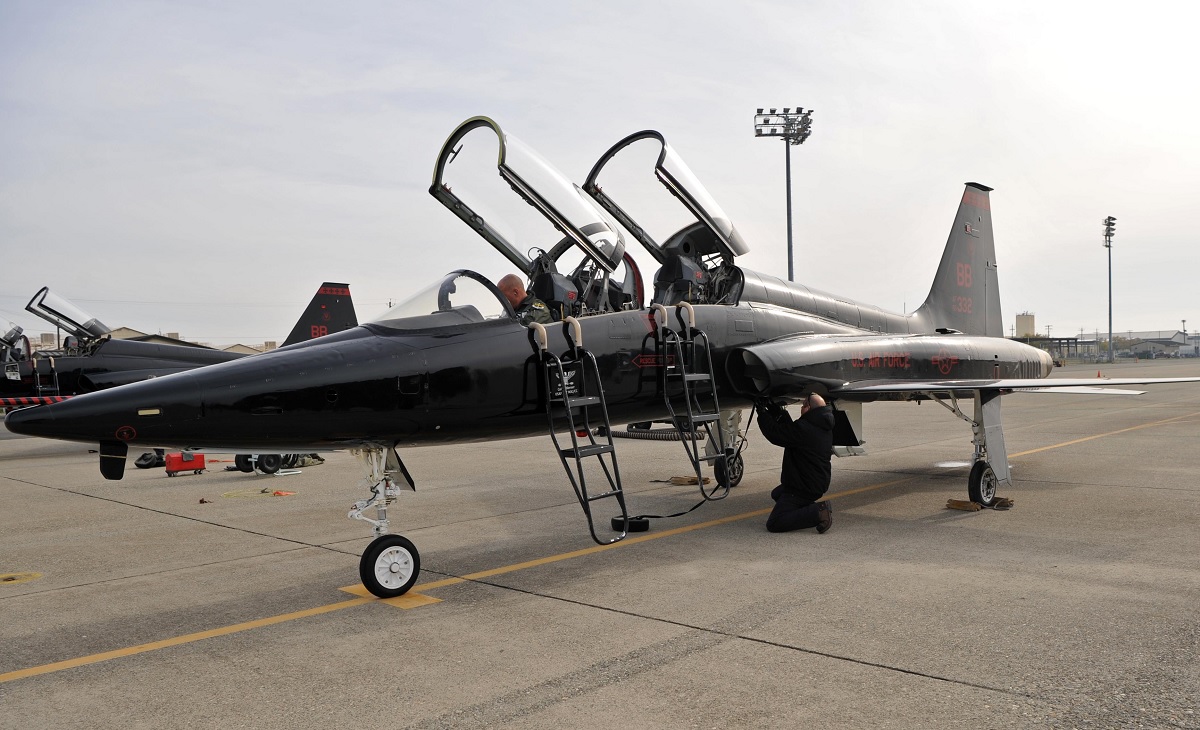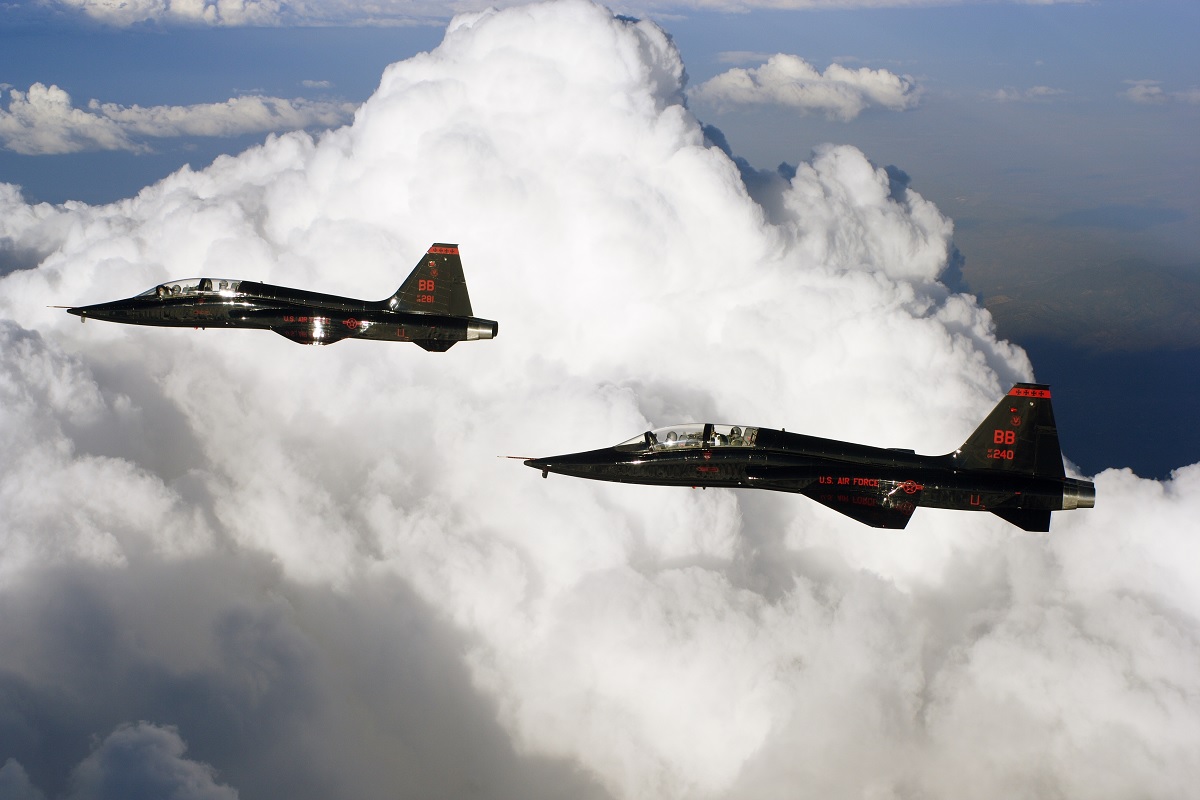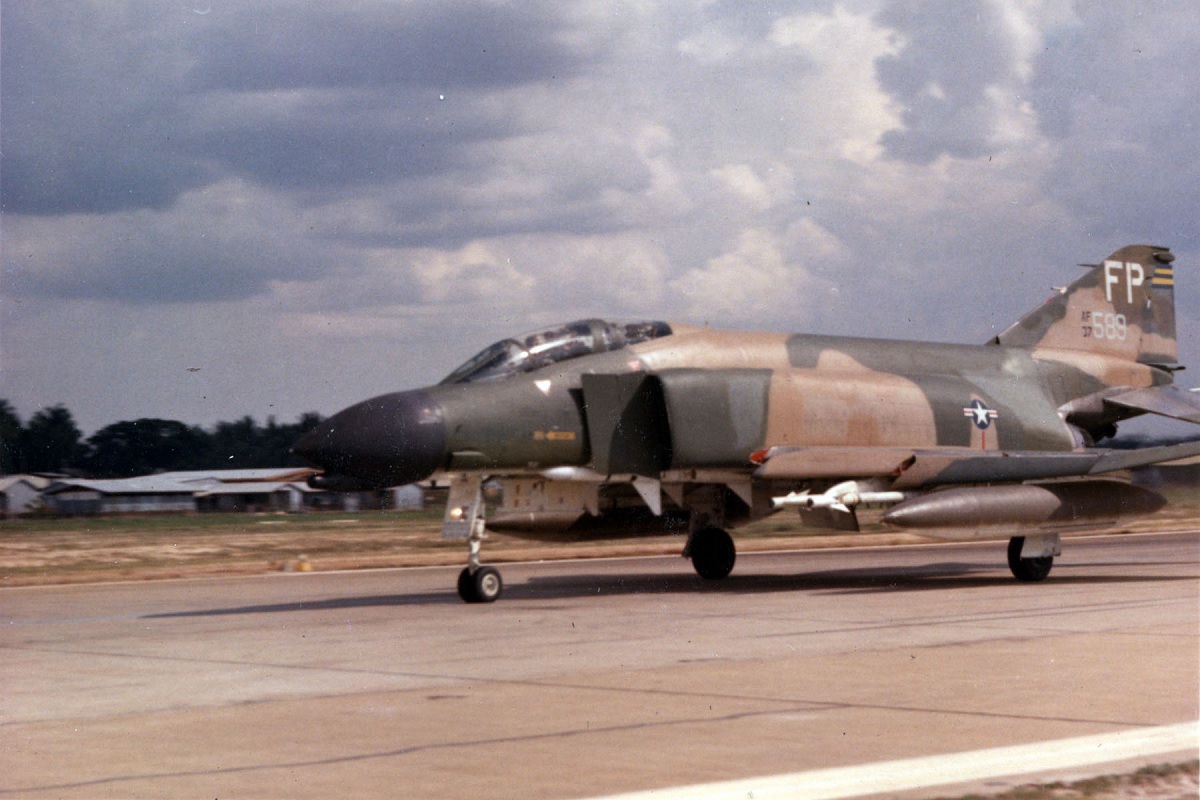Memorial flyover dedicated to Constant Peg Commander
The photos included in this article, which was initially reported by Alert 5, depict a memorial flyover at Nellis Air Force Base (AFB) on November 7, 2024, honoring retired US Air Force and Constant Peg Commander Col. Gail Peck, who passed away a few weeks earlier.
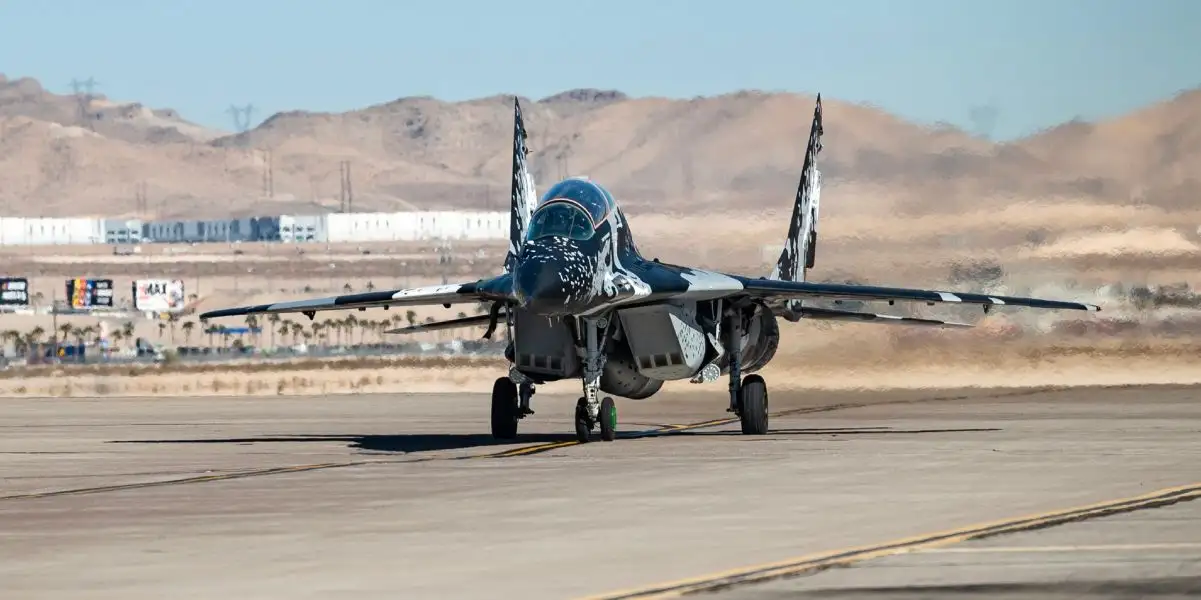
The first son of Air Corps Lt. Gaillard and Lois Peck, Peck was born in Brooke Army Medical Center at Fort Sam Houston, Texas, according to the National Museum of the United States Air Force. He grew up in the military and attended lots of schools, including two in the Territory of Alaska and occupied Japan. After completing high school in 1958, he enrolled in the Air Force Academy, where he graduated in 1962 as a member of the original Red Tags, the fourth graduating class.
Pilot training followed at Laughlin AFB, Texas. Graduating first in his class in September 1963, Peck was assigned duties as a T-33 instructor pilot (IP). Within a year he upgraded to the T-38 and then was assigned to Randolph AFB as a T-38 Pilot Instructor Training IP.
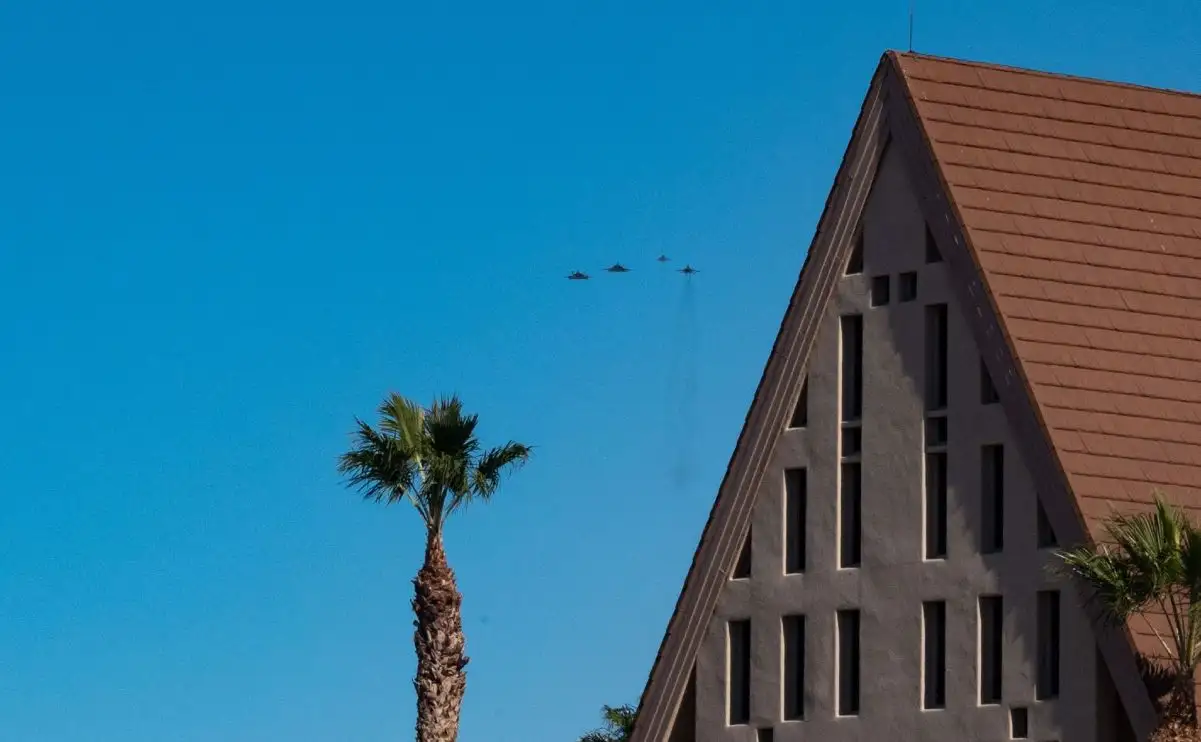
Peck was deployed to MacDill AFB, Fla., in December 1967 for an F-4 gunnery school in the pipeline to Southeast Asia. He joined the 433rd TFS “Satan’s Angels” at Ubon Royal Thai Air Base in Thailand in August 1968. Peck performed 163 combat missions in the F-4D in North Vietnam and Laos during his time at Ubon, including 100 night combat missions. Following his combat tour, he was sent to MacDill AFB in August 1969 to serve as an operational fighter pilot with the 46th TFS. In 1970, Peck completed Fighter Weapons School and went back to MacDill AFB.
CP Commander
As an air-to-air instructor in the Fighter Weapons School at Nellis AFB, Nevada, Peck was assigned to the 414th FWS in July 1972. He briefly held the position of flight commander for Terminally Guided Weapons before being chosen to lead the F-4 Fighter Weapons School’s air-to-air flight in 1974.
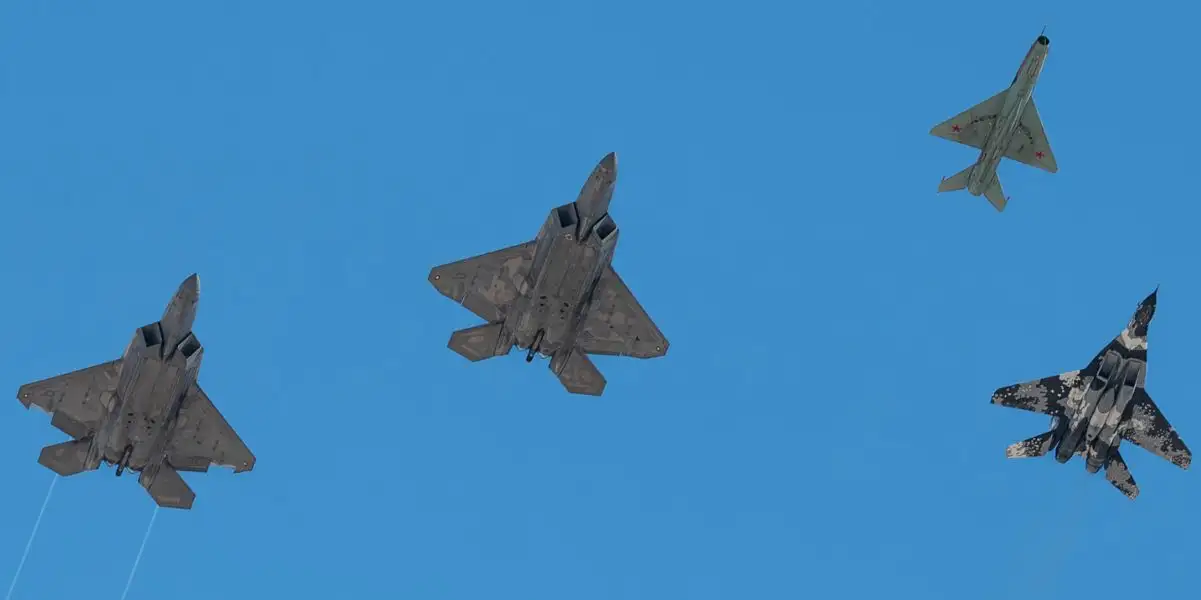
Peck attended Armed Forces Staff College in Norfolk, Va., in early 1975 and reported for duty in the Pentagon. He was soon moved into the position in the “fighter shop” known as the AF Tactics Officer. In the unclassified world he managed Red Flag and other overt programs. He also operated in the “black” world.
In this role, he started a program that he called Constant Peg (CP), a play on the names of his wife Peggy and the AF/XOO’s “call sign,” Constant. CP resulted in the enhancement of an airfield at the Tonopah Test Range and the initiation of jet fighter operations from that airfield with the 4477th TEF flying both MiG-17s and MiG-21s. The purpose of CP was to train AF and Navy fighter pilots to a degree of proficiency never before achieved.
He was chosen to return to Nellis in 1978 as an AF Aggressor pilot and 4477th TEF (Constant Peg) Commander after being promoted to lieutenant colonel in 1977. He served as the 4477th TEF’s initial commander at Tonopah and its second commander at Nellis.
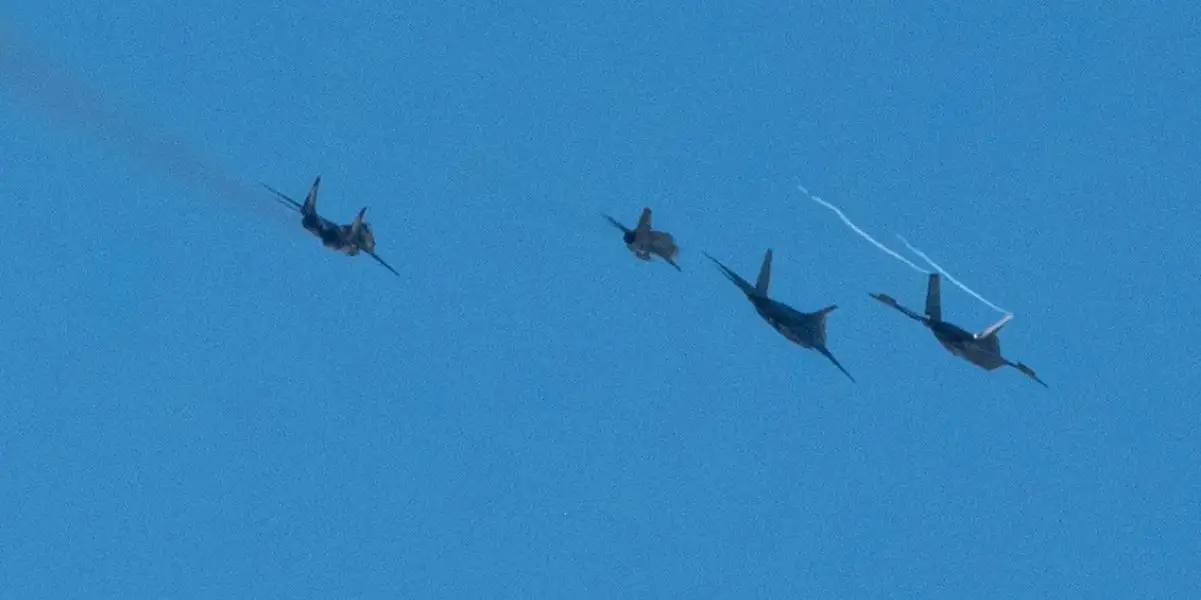
Saudi F-5 instructor pilot
Next, Peck was assigned to Riyadh, Saudi Arabia, as the US Military Training Mission tactics officer. During this period, the Iran-Iraq war started, and Peck was a key planner and operations expert engaged in the movement of AWACS and KC-135 aircraft to the Kingdom and the establishment of a command and control system known as ELF 1. Peck flew the Saudi F-5 as an instructor pilot during this assignment.
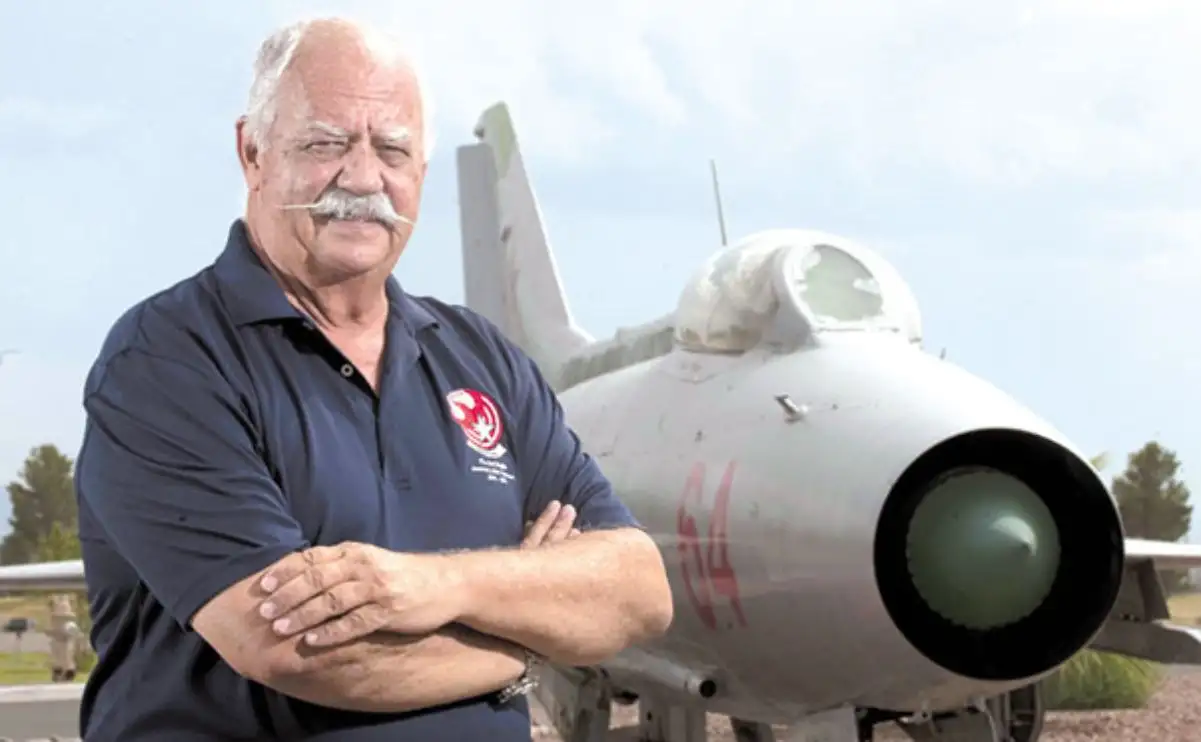
Next was promotion to colonel and the National War College in Washington, D.C. In 1983, Peck completed F-15 requalification prior to assignment to Kadena AB, Japan, as the Deputy Commander for Operations of the 18th TFW. After nearly a year as DCO, he was advanced to Vice Commander of the 18th. During this period he was combat-ready in the F-15 and also flew as an RF-4C aircraft commander with the 15th TRS.
In June 1985, Peck was selected as the Wing Commander of the 26th Tactical Reconnaissance Wing at Zweibruecken AB, Federal Republic of Germany.
In June 1987, Peck was assigned to the AF Inspection and Safety Center at Norton AFB, Calif., as the Deputy for AF Safety. On July 31, 1988, Peck retired from active duty with over 26 years of continuous commissioned service.
Peck has over 5,000 hours of flying time in the T-33, T-38, F-4, RF-4, F-5, F-15, MiG-17, MiG-21, and a variety of general aviation aircraft.
Photo by William Lewis & Airman 1st Class Timothy Perish / U.S. Air Force






